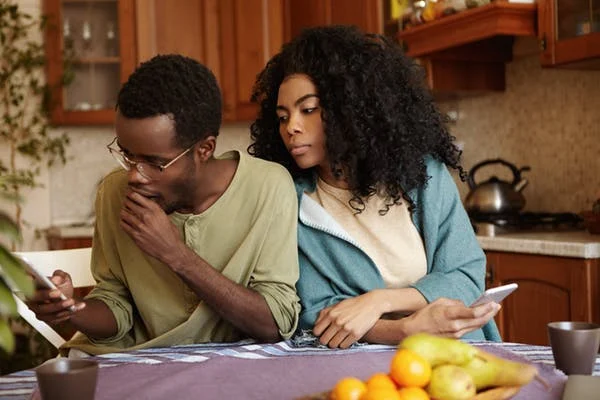Introduction: The Impact of Sports on Society
Sports have an undeniable power to shape our society. They go beyond mere competition and entertainment, weaving themselves into the very fabric of our communities. From small-town little leagues to global events like the Olympics, athletics have a unique ability to unite people from diverse backgrounds. Whether it’s cheering for a local team or rallying around a national hero, sports create bonds that transcend differences.
But what is it about sports that inspires such passion? It’s not just about winning trophies; it’s about connection and shared experiences. The energy felt in stadiums, the joy of teamwork, and even the heartbreak of defeat all contribute to a collective identity. In many ways, they serve as microcosms of society itself—a place where values are tested and character is revealed.
As we explore further into this topic, we’ll uncover how athletics can spark change within our communities while fostering inclusion and unity among individuals from all walks of life. Join us on this journey through “The Power of Sports”—a celebration of how games can ignite hope and inspire action across the globe.
The Evolution of Sports and Their Role in Communities
Sports have come a long way, evolving from simple games played in ancient times to complex competitions that captivate millions. Ancient Greeks celebrated athletic prowess through the Olympics, creating bonds among city-states.
As societies grew, so did the role of sports within them. Community events began to emerge, with local leagues forming around various sports. These gatherings fostered camaraderie and provided an avenue for social interaction.
The rise of professional athletics brought diverse communities together as fans rallied behind their teams. Stadiums became melting pots where different backgrounds converged, sharing laughter and joy while rooting for a common goal.
Today, technology has further transformed how we engage with sports. Social media platforms allow fans to connect across geographical boundaries. This accessibility promotes conversations about athletes’ impact on society and amplifies community spirit like never before.

Sports as a Tool for Social Change
Sports have long been a powerful vehicle for social change. They transcend borders, cultures, and languages. Through athletics, individuals find common ground and shared experiences.
Athletes often use their platform to champion important causes. Their visibility ensures that issues such as racial equality, gender rights, and mental health are brought to the forefront of public discourse. Icons like Muhammad Ali and Colin Kaepernick have sparked conversations that resonate far beyond the field.
Community sports programs can also drive grassroots movements. Local initiatives encourage teamwork while addressing critical societal issues like youth development and economic disparity.
Moreover, international competitions unite nations in moments of camaraderie. The Olympic Games exemplify this spirit by celebrating diversity through sport while promoting peace among rival countries.
The potential for transformation is immense when sports become a catalyst for dialogue and action within society.
Examples of Athletic Achievements and Their Influence on Society
Athletic achievements have often transcended the field, leaving a lasting impact on society. Think of Muhammad Ali. His boxing prowess and activism reshaped perceptions around race and justice in America.
Then there’s Jackie Robinson, who broke Major League Baseball’s color barrier in 1947. His courage inspired generations to advocate for equality in all areas of life.
In recent years, athletes like Colin Kaepernick sparked conversations about social justice through their platform. He took a knee during the national anthem, igniting widespread debate about racial inequality.
Women athletes are also making waves. Serena Williams has become an icon not only for her tennis skills but also for advocating gender equity in sports and beyond.
Each achievement echoes through communities, inspiring many to challenge norms and push for change. These stories illustrate how sports can be more than just games; they are powerful catalysts for societal transformation.
The Importance of Inclusive Athletics for Building Stronger Communities
Inclusive athletics play a pivotal role in fostering community spirit. When everyone has the chance to participate, it creates a vibrant tapestry of experiences and backgrounds.
These programs break down barriers. They allow individuals from diverse cultures to come together, share their stories, and learn from one another. This interaction nurtures understanding and respect among participants.
Moreover, inclusive sports can boost self-esteem and confidence for many. Athletes who may have felt marginalized find their place on the field or court. Their successes inspire others to pursue their passions without fear of judgment.
Community events centered around inclusive athletics promote unity beyond just competition. Families gather, friendships form, and conversations spark among spectators and players alike. In this environment, people discover common goals that transcend differences.
Inclusivity shapes not only athletic skills but also social connections that strengthen communities at every level.
How Sports Bring People Together and Foster Unity
Sports have an incredible ability to bridge divides. Regardless of age, background, or beliefs, they create common ground for people to gather and share experiences.
When a local team plays, fans from all walks of life come together in support. The excitement is palpable as cheers echo through the stands. In those moments, differences fade away.
Community events like marathons or charity games further strengthen these bonds. Participants unite for a cause greater than themselves—whether it’s supporting a local school or raising funds for health initiatives.

Athletics also serve as conversation starters. Strangers can bond over favorite players or memorable games that shaped their lives.
This shared passion cultivates friendships beyond the field and fosters dialogue among diverse groups. Through sports, unity flourishes in ways that few other activities can achieve, creating lasting memories and connections within communities.
Frequently Asked Questions
What is the role of sports in uniting communities?
Sports create shared experiences. They bring people together, fostering camaraderie and teamwork. Whether it’s a local game or an international tournament, fans gather to support their teams. This sense of belonging can bridge divides and promote understanding among diverse groups.
How can athletics inspire social change?
Athletics often serve as a platform for advocacy. Athletes use their influence to raise awareness about important issues such as racial equality, mental health, and environmental sustainability. Initiatives led by sports figures can galvanize communities into action.
Why is inclusivity important in sports?
Inclusivity ensures that everyone has access to athletic opportunities regardless of background or ability. Diverse participation enriches the experience for all involved and helps dismantle stereotypes while promoting mutual respect among participants.
Can sports have negative impacts on society?
While sports typically foster unity, they can sometimes lead to division or unhealthy rivalries. It’s essential to focus on positive engagement rather than exclusionary practices that may arise from competitive environments.
Where do I find community sporting events near me?
Local parks, recreation departments, schools, and community centers often host events open to all ages and skill levels. Websites like Meetup or local Facebook groups are also great resources for finding activities that suit your interests.
The power of sports lies not just in competition but in its remarkable ability to connect individuals across various walks of life. With every match played and every cheer raised from the stands, we celebrate our collective humanity through the spirit of athletics.
Find out more at: https://tinyurl.com/nhdhkzrw










